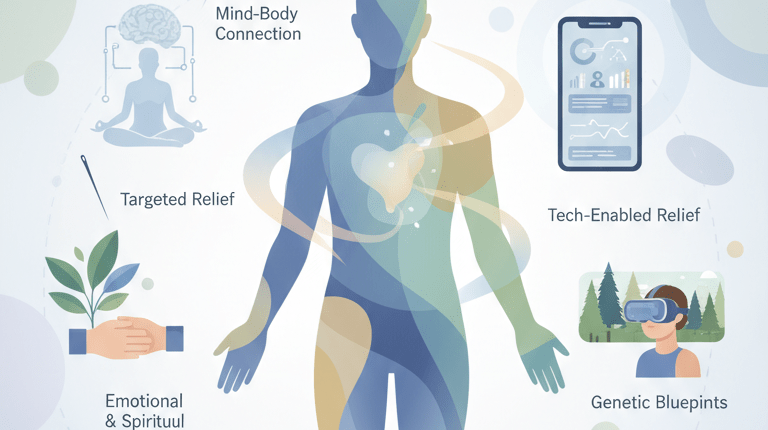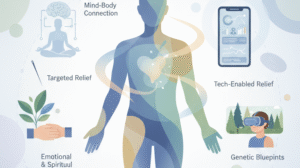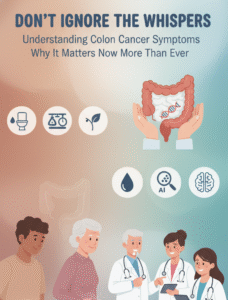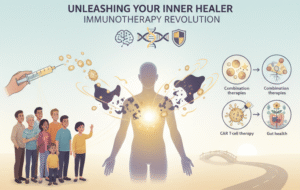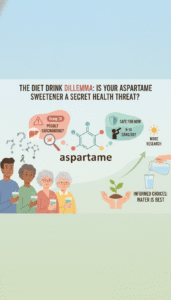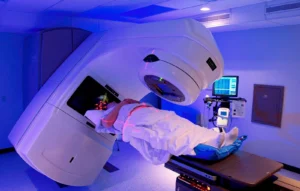The Pain Puzzle: Why “Just Treat the Cancer” Isn’t Enough
Imagine this: you’re not only grappling with a cancer diagnosis and treatment, but also with pain that just won’t quit. It’s not just a physical discomfort; it’s a “total pain” that affects your mood, your ability to think clearly, your relationships, and even your sense of purpose.
For too long, cancer treatment has often focused primarily on attacking the tumor. But what about you, the person experiencing the pain? Traditional medications sometimes fall short, leaving many to suffer in silence.
Thankfully, a revolution is underway: holistic pain management. This approach recognizes that you are more than just your cancer. It’s about treating you as a whole person, taking into account your physical, emotional, and spiritual needs.
A New Rx: Blending Science with Soul (and Maybe Some Acupuncture!)
The medical world is increasingly embracing this “whole person” philosophy. It’s not about replacing conventional treatments like chemotherapy or radiation, but about enhancing their effectiveness by integrating other therapies.
Think of it as building your own personalized pain toolkit. Doctors and patients are collaborating to address pain from multiple angles.
- Mind-Body Connection: Practices like acupuncture, massage, yoga, meditation, and even hypnosis are now recognized as evidence-based methods to alleviate pain, reduce anxiety, and improve overall well-being. Organizations like the Society for Integrative Oncology (SIO) and the American Society of Clinical Oncology (ASCO) actually recommend many of these therapies.
- Targeted Relief: In addition to traditional opioid medications (which are still vital but used more cautiously), doctors are exploring techniques like nerve blocks, physical therapy, and specialized anti-inflammatory diets to provide more focused relief.
- Emotional & Spiritual Support: Cancer pain can trigger emotional distress, anxiety, and spiritual questioning. Holistic care acknowledges this, offering counseling, support groups, and spiritual resources to help patients find meaning and cope with these challenges.
This integrated approach helps you feel more empowered and in control, potentially reducing your reliance on strong pain medications and improving your quality of life both during and after treatment.
The Elephant in the Room: Hurdles and Head-Scratchers
This shift toward holistic care is exciting, but it’s not without its challenges. One issue is skepticism, which often arises from the difficulty in differentiating between evidence-based complementary therapies and unproven or potentially harmful “alternative” remedies.
Insurance coverage can also be a barrier, as some companies are hesitant to cover these broader interventions. Additionally, both patients and healthcare providers may lack the necessary knowledge or comfort level to fully explore and implement these diverse strategies.
Even the traditional “WHO analgesic ladder,” a guide for pain management, is being re-evaluated. Some experts suggest that more flexible, individualized approaches to opioid use may be needed, reflecting the ongoing evolution and debate in this field.
The Future is Bright (and High-Tech!): Personalized Pain Relief on the Horizon
The future of cancer pain management is poised for even greater transformation. Here’s what you can look forward to:
- Tech-Enabled Relief: Imagine AI tools that can predict your risk of developing chronic pain, mobile apps that help you track and manage your symptoms in real-time, or virtual reality (VR) experiences that immerse you in calming environments to reduce pain during medical procedures.
- Genetic Blueprints: Personalized medicine will become even more precise, using your unique genetic makeup to predict how you’ll respond to different pain medications. This will enable more effective treatments and reduce the likelihood of side effects.
- Novel Discoveries: Research is yielding new pharmacological agents, such as non-addictive plant-derived therapies and drugs that target specific pain pathways, offering hope for even the most challenging cases.
The journey to conquer cancer pain is becoming as complex and individualized as the patients themselves. By treating the whole person – mind, body, and spirit – we’re not just managing pain; we’re empowering individuals to live better, fuller lives, even in the face of cancer.

